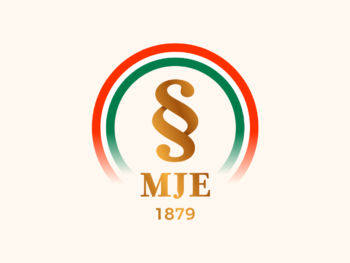On the occasion of the forthcoming Europe Day let us recall the birth of the European integration. The proposal of pooling the French and German coal and steel production under a joint organisation was put onto paper on 9 May 1950, based on which the process of European unification started to develop. As Union citizens we enjoy several practical advantages of our membership. For example, we can travel, trade, study and take up employment freely. In case we meet certain conditions, we are entitled to this freedom also as attorneys. On the other hand, however, this also means challenge and greater responsibility as lawyers, as we have to be well informed not only in the field of the Hungarian law but also of EU law. It is not enough to apply EU law, we have to be aware of forums and procedures that facilitate its coherent and uniform interpretation.
According to the wording of the Constitutional Court, EU law is of “sui generis” nature, and “as internal law it does not fit into the domestic hierarchy of sources of law, but it is a body of law the application of which is mandatory based on the constitutional order included in the Fundamental Law.’ {Resolution No. 2/2019. (III. 5.) AB, Reasoning [20]}. Accordingly, the Constitutional Court considers EU law, separate from international law, as part of domestic law. As the above cited resolution of the Constitutional Court declares that EU law is not part of the system of sources of law included in the Fundamental Law, collision between domestic law and EU law cannot be resolved by applying the rules of hierarchy of laws. Collisions and conflicts, however, emerged already at a young age of European integration, but have been continuously present in the last decade, and are playing an increasingly determinative role in the fate of the integration.
The Court of Justice of the European Union, based on the doctrine developed by itself, stands on the ground of the primacy of EU law also over national constitutions. In contrast to this European monist perception, however, the protection of the constitutions takes precedence for the national supreme and constitutional courts proceeding on the basis of the inalienable sovereignty, which courts, furthermore, do not recognize the unconditional supremacy of EU law in general, either. In fact, the Member States have not ceded the essence of their sovereignty and independence, and the right to freely determine the organization of their state. As a result, the European integration is characterised by an inherent tension: the supremacy of EU law may contradict the sovereignty and constitutional self-identity of the Member States, and this may lead to conflicts in the field of limitations of joint exercise of EU competences, as set by the constitutions, in particular in the field of delimitation of EU and Member State competences, and the protection of national constitutional identity.
In resolving such conflicts, both the Court of Justice of the European Union and the national supreme and constitutional courts play a vital role. National legal systems, legal cultures, and the EU law that is based thereon live together in the European Union in interaction with each other, influencing each other. Accordingly, the CJEU on the basis of the Founding Treaties, while the national supreme and constitutional courts on the basis of the constitutions guard not only the enforcement of EU law, but also the adherence to the limitations of EU law following from national constitutions. In the European legal community, therefore, responsibility for integration and its development in accordance with the will of the Member States as manifested in the Founding Treaties presumes cooperation, a particular dialogue between the European judicial forums. The Hungarian Constitutional Court, in its milestone decision No. 22/2016. (XII. 5.) AB, by setting the possibilities for the constitutional control of the exercise of EU competences, put the emphasis on the significance of the dialogue between EU and member state courts within the framework of constitutional cooperation.
The resolution of conflicts within the European legal community, therefore, cannot be one-way; only mutual, multi-level cooperation and dialogue, respecting each other’s competences can provide an opportunity therefor. Such dialogue is created by the decisions of courts being of equal standing. The institution of preliminary ruling procedure as provided for by the Founding Treaties, intended to facilitate the coherent and uniform interpretation of EU law, also serves this purpose. On the other hand, however, in the spirit of constitutional tolerance and on the basis of national constitutional authorizations, setting national constitutional limits for EU law, including the division of powers and the protection of constitutional self-identity, also assumes such a cooperation, in the fields of which, however, the national supreme and constitutional courts shall have the last word. This cooperation, based on mutual respect and tolerance, is the key to realizing the responsibility for integration, and in a broader sense it contributes to the fulfillment of the principle “United in diversity”, known as the motto of the European Union.
With kind regards,
Prof. László Trócsányi











 Newsletter from the president of the Hungarian Lawyers Association – April 2021
Newsletter from the president of the Hungarian Lawyers Association – April 2021